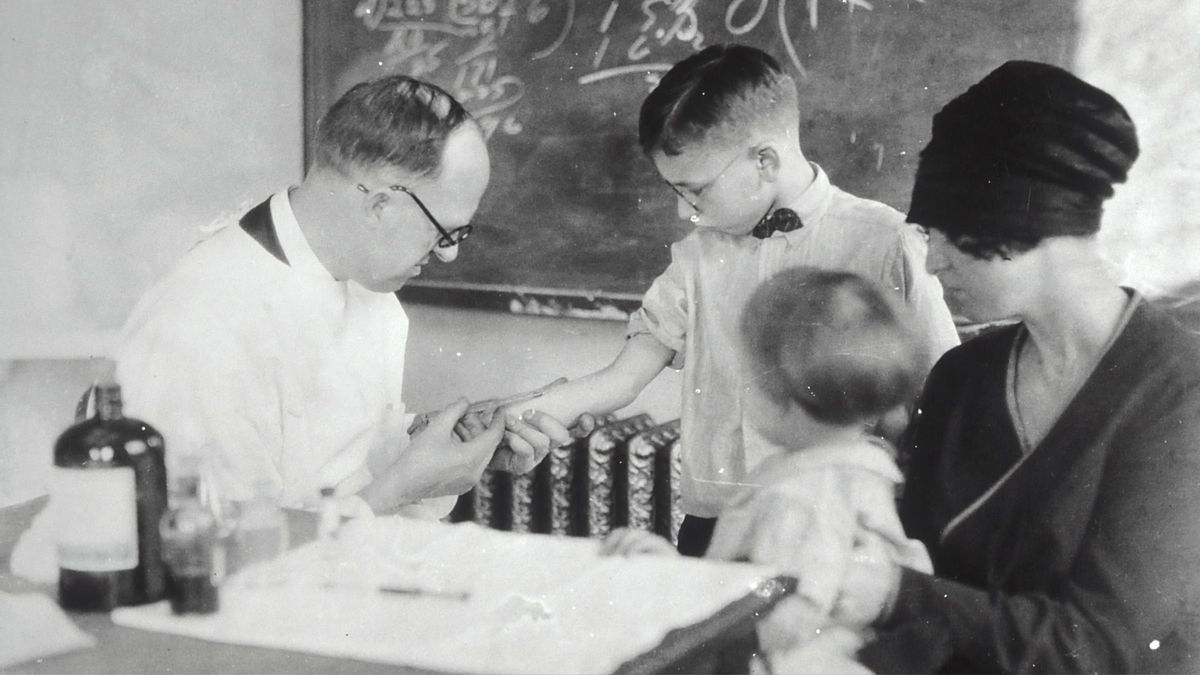JAKARTA - Herd immunity or group immunity and also known as population immunity has been researched, studied, and practiced since more than a century ago. By having immunity or pathogen resistance in one group, herd immunity can be achieved.
To what extent does the concept of herd immunity or group immunity work effectively? Since when has it been scientifically researched? Here's the full explanation.
Launching The Lancet, Tuesday, February 16, the concept of herd immunity is given to soldiers and navies who fought infections during World War I. In the 1920s, medical professionals worked to identify and treat pathogens and recognize their population.
How can the degree of disease pathogenicity over a certain period of time lead to the ups and downs of population resistance to pandemic waves?
In July 1919, a bacteriologist WWC Topley described an experimental epidemic he created in a group of mice. A group of mice is resistant or survives until the end of the epidemic, except in the susceptible group.
Subsequently, in the Journal of Hygine, in 1923 Topley and GS Wilson described group resistance as herd immunity.
A year before the report published in a scientific journal, Topley found that there were similar cases of epidemic disease spread in humans, especially among school-age children.
Sheldon Dudley, a professor of pathology at the Royal Naval Medical School researching the diphtheria epidemic and applying the concept of herd immunity. The results of his report were written in a scientific paper entitled Human Adaptation to the Parasitic Environment published in 1929.
The report contains the basics of the factors involved in the spread of infectious diseases. And active immunization against diphtheria affects the distribution of antitoxic immunity.
Not finished with an outbreak, in 1930 discussions of herd immunity related to influenza, polio, smallpox, and typhus appeared in textbooks, journals and public health reports in the UK, Australia and the United States.
Herd immunity in one topic is also related to racial analysis, which racial group is more resistant to an outbreak. Dudley explores whether the body's resistance to the spread of the epidemic in one group is influenced by natural immunity or immunization. Until the 1950s and 1960s when new vaccines were made, it raised big questions about public health policy.

Towards 1990, the facts to identify and explore herd immunity peaked again. Until 2020 the global pandemic over the spread of the Covid-19 virus requires various parties related to public health to take action.
In the case of a measles epidemic, a population of 95 percent is needed so that the other 5 percent will be protected from the spread of measles. Meanwhile, polio has a herd immunity threshold of 80 percent.
Reporting from Business Insider, Tuesday, February 16, experts estimate that to stop the spread of Covid-19, 40-70 percent of the population is immune. Meanwhile, in conditions of heterogeneous pathogen resistance, herd immunity was achieved by increasing the group's immunity, one of which was vaccination.
Based on an official release from the WHO, immunity to Covid-19 is still being studied. Most people who are infected experience an immune response within the first few weeks. But it is not certain how strong or how long this immune response will last.
Research data on seroprevalence from around the world indicate that less than 10 percent of study subjects have experienced infection. This means that some of the others are still vulnerable to this virus.
Because there is no definite calculation of how effective the Covid-19 vaccine is, it means that tactical action still needs to be balanced with the imposition of social distancing, minimizing transmission through droplets by wearing masks, washing hands, spraying disinfectants, and a number of ways to be resistant.
The English, Chinese, Japanese, Arabic, and French versions are automatically generated by the AI. So there may still be inaccuracies in translating, please always see Indonesian as our main language. (system supported by DigitalSiber.id)













